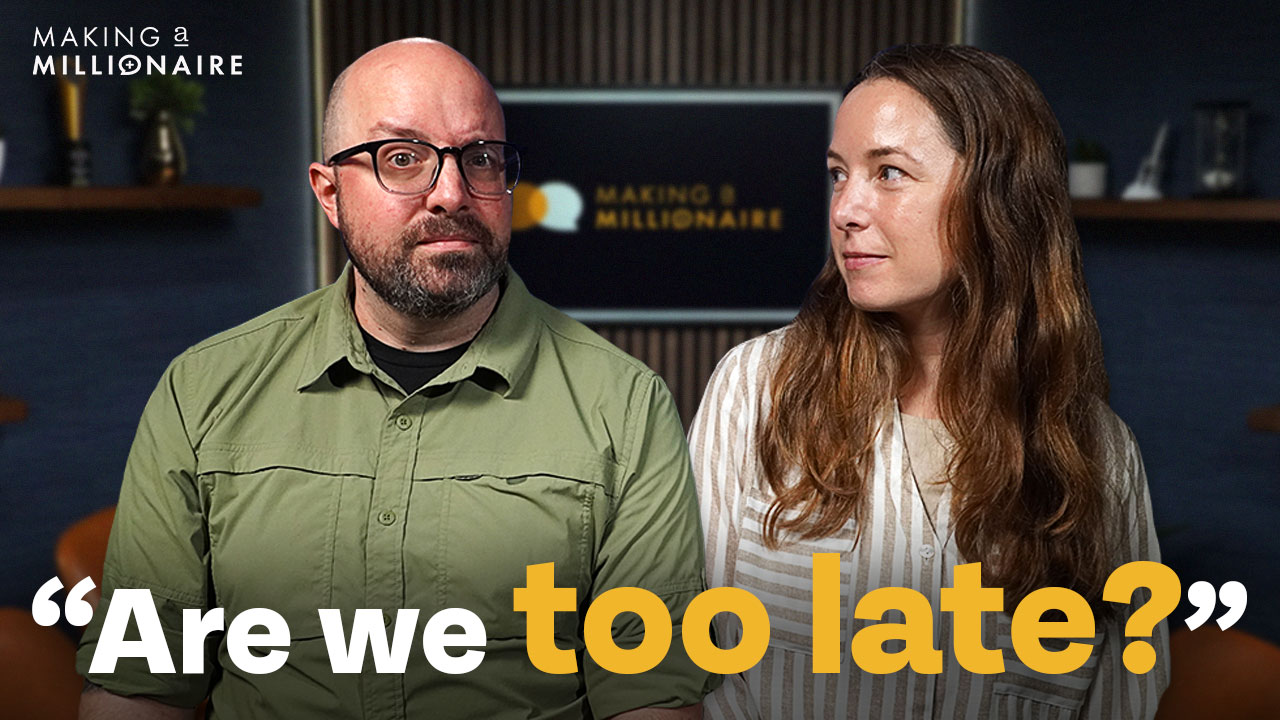Let's move on to Dave's question. He says, "My wife is a teacher. 14% of her pay goes to the state pension in lieu of 6.2% to Social Security. The school matches this 14% by law. How much should we count towards our 25% because we don't know what her benefits will be? I think that this is an interesting question just about how should you factor this in when thinking about your savings. This is a really interesting brand because I heard a little nugget in there that we don't often get to address that a lot of people don't recognize. And Craig, if I'm wrong on this, but school systems, a lot previously—I don't know if they can still do this, but previously they could actually opt out of withholding Social Security and instead of withholding Social Security, they would instead make a payment into a pension plan, so a pension or 403b pension or a defined contribution plan. So, what's really, really interesting is you have this 14% that's going into this pension, and that is also getting matched, which is great. But you are going to be in the unique scenario where you're not going to have Social Security when you get there, where a lot of folks kind of count that to be some sort of baseline of income. So when it comes to saving and thinking about savings rate, what would you tell Dave and his wife with regards to, nope, still do 25%, or maybe some number less, factor in the 14%, and then what about not having the social safety net?"
"Yeah, Dave, I think this is a great question, and I love when we get little nuances like this because I've actually approached this with my practice. If you want to know who I built my original financial planning firm with, I had a lot of teachers from Clayton County, Gwinnett County here in the state of Georgia. It's because, back then, same situation: they had no Social Security, but they set up these 403b accounts where they would take their 6.2% and put it in there, actually the 12.4%, but here's the reality: those accounts were huge by the time these teachers retired. I loved it because these teachers were coming to me with six, seven hundred thousand dollars from teacher salaries. It proves my point that if you can just take a little bit and start stacking it every month, every time you get paid, and let it just get out there and get to work and then being invested. These were with Fidelity at the time, and I was like, 'Man, this is a testament to if you just let your money work, it can grow upon itself.' Because these teachers had great retirements because they not only had the 403Bs that replaced Social Security, but they also got the status. So they were—they, I mean, I had one that just passed away last year. She was one of my earliest clients throughout the world. She was so awesome. She passed away with millions of dollars from being a teacher. It was kind of amazing. But it also shows how old I am, is that I've worked with her while she was working and her full retirement is just full cycle. But it is one of those things where, Dave, I will tell you, I think you can count this towards your 25% thing. As long as your household income is less than two hundred thousand dollars, it is one of those things where I also will tell you, Dave, what I see everyone, because, like I said, I had a whole bunch of these that were clients: every one of my teachers who did this, I think—I think the one I was just telling about, I don't think she did, but majority, let's just say the majority of them, after they were getting close to retiring, they started doing side hustles, whether it was going and working at a Walmart or a few of them went and worked for other school systems to do, like, summer school or test-taking proctors. They all got their quarter hours in. So they not only took advantage of getting the 403Bs, in your wife's case, the pension, on top of these, whatever the retirement that might be out there from the state or so forth. But this, um, they went and got their quarter hours and got the Social Security benefits added on top too. Um, I would count this towards your 25%. The only thing I'll throw out there is, while you could likely save less because of that, if you find that you have your lifestyle contained in such a way where you're able to do the things you want to do and you're able to—you're not, like, missing out on things, I am a proponent that, especially if you have the margin, there's nothing wrong with saving extra, right? If you save—if you still save 25%, if you save 20%, even though you have that 14% going to the pension, what's likely going to happen for you is you're just going to have more options earlier. And more options early is a great place to be. Maybe instead of having to work until you're 65, you get to stop working at 60 or 55 because you saved so early. So don't think, 'Oh, well, I've got the pension, I'm set, I'm gonna go find something else to do.' That money, I—I think getting ahead of there's nothing wrong with being ahead of the curve, and I think that's what gives you freedom. That's what it is, is the thing you choose. I mean, that's one thing I—I think a lot of the fire folks that we deal with, what's always surprising to me is that many of them leave one job and, yes, they take some time, but then they usually go do something else, but they, you know, but they do something that they want to do, that's right. And that's what, if you—the sooner you can own your time, the more you're making decisions out of abundance and off of purpose and what makes you happy versus out of obligation, and that's a powerful, powerful place. That's right." For more information, check out our
free resources.














